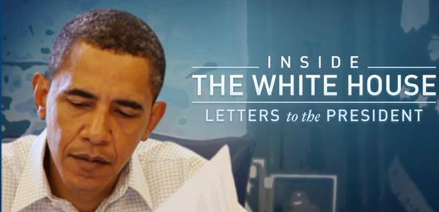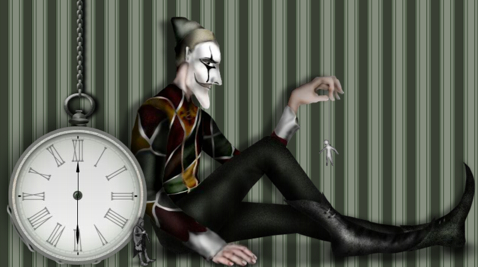Time for my monthly look at storytelling zeitgeist in Twitterland. Here are items that have gained significant attention:
-
- Add to the annals of Twitter storytelling, Columbus across the Atlantic, in which Chuck Steele is “twittering the ship’s log of Christopher Columbus’ first voyage to the New World.”
- An Ad Age article discusses the storytelling of the Dos Equis “Most
 Interesting Man” campaign: Awesome storytelling bringing awesome results. The Most Interesting Ad Campaign gets results.
Interesting Man” campaign: Awesome storytelling bringing awesome results. The Most Interesting Ad Campaign gets results.
-
- Much laud for the storytelling prowess of Frank McCourt after his recent death made its way to the Twitterverse.
- Henry Jenkins’s video on transmedia storytelling and convergence culture (below) was significantly re-tweeted. Good stuff!
-
- Yikes! Is “storytelling” merely a buzzword? @lindadong tweeted: “I’m so sick of buzzwords. No more ‘innovation’ ‘storytelling’ ‘experience’ or ‘usability'”!
- I liked this quote from Nigerian poet and novelist Ben Okri that Scott Zeitz tweeted: “The fact of storytelling hints at a fundamental human unease, hints at human imperfection. Where there is perfection there is no story to tell.”
- Storytelling practitioners and fans will find familiar material in The Need for Storytelling Skills on Silvia Tolisano’s Langwitches blog. These four summary points suggest reasons we need storytelling skills, an argument author Lori Silverman crusades for:
- There is more INFORMATION out there than ever before in human history. We (and our students) need to learn how to find, evaluate and make sense out of all this information that we are bombarded with through many types of different media.
- WHAT HAPPENS when we have obtained this/these information/facts? What do we do with it? How will we remember? How will we archive for future retrieval?
- It is precisely THAT ability (organize/connect/remix/create) that we need to foster in ourselves and our students . The ability to put these facts in context. The amount of facts alone (without context) just overwhelms us.
- Storytelling (putting information in a narrative context) might be the answer to our need to make sense of this vast information that is available to us anytime, anywhere and anyhow.
- This technically multifaceted site from Louis Vuitton, A Journey Beyond, “connects history, storytelling, and the thrill of a journey with an iconic brand.” It presents perspectives from astronauts Jim Lovell, Buzz Aldrin, and Sally Ride. My laptop couldn’t quite handle the technical requirements, so I didn’t see too much. The site is impressive, but I didn’t see enough to form an opinion on the storytelling.
- A re-tweeted TED talk was characterized as explaining why storytelling needs interactive imagery. In the talk, information designer Tom Wujec talks through three areas of the brain that help us understand words, images, feelings, connections. …he asks: How can we best engage our brains to help us better understand big ideas?
- Another quote I liked, this one from @KathySierra: “Don’t learn PPT/Keynote, learn how the brain works. Learn storytelling. Study filmmaking. Apply learning theory. Inspire.”
- This piece by Melinda Partin from Fast Company garnered attention: Brand Storytelling: Connecting With Your Audience. She describes a storytelling ad her company created:
… When sharing the story of the AT&T 8525 by HTC, a Windows Mobile smartphone, we targeted harried business people who needed real-time access to their productivity tools, such as email and Microsoft Office programs, at all times. An out-of-home campaign in airports, subway stations and table trays on Alaska Airlines jets showed how the 8525 kept users calmly connected, as if they were sitting in their offices. An emotional need was met — to stay calm and connected — while the consumer was actually in a usually stressful travel environment.
- In Storytelling tools: Audit Your Intellectual Capital — 7 Ways to Find Your Stories, Elizabeth Sosnow raises the specter that corporate entities trying to promote themselves in social-media communities face “story fatigue.”
- Another technologically and visually stunning Flash site, The Ropewalker created Twitter buzz for “really slick storytelling.”
- Yet another good quote, which I believe comes from @ChuckWendig: “Future of storytelling: multimedia, illustrated stories, co-created in real time by author, audience, and fictional characters.”
- The Whitehouse got kudos for video storytelling (with music): “Inside the White House: Letters to the President”
 And in a final piece of Twitter-worthiness, author Dave Eggers’ project, Once Upon a School is all about telling “stories about how all kinds of people — from celebrities to retired journalist — are doing their part to improve their local schools.”
And in a final piece of Twitter-worthiness, author Dave Eggers’ project, Once Upon a School is all about telling “stories about how all kinds of people — from celebrities to retired journalist — are doing their part to improve their local schools.”

